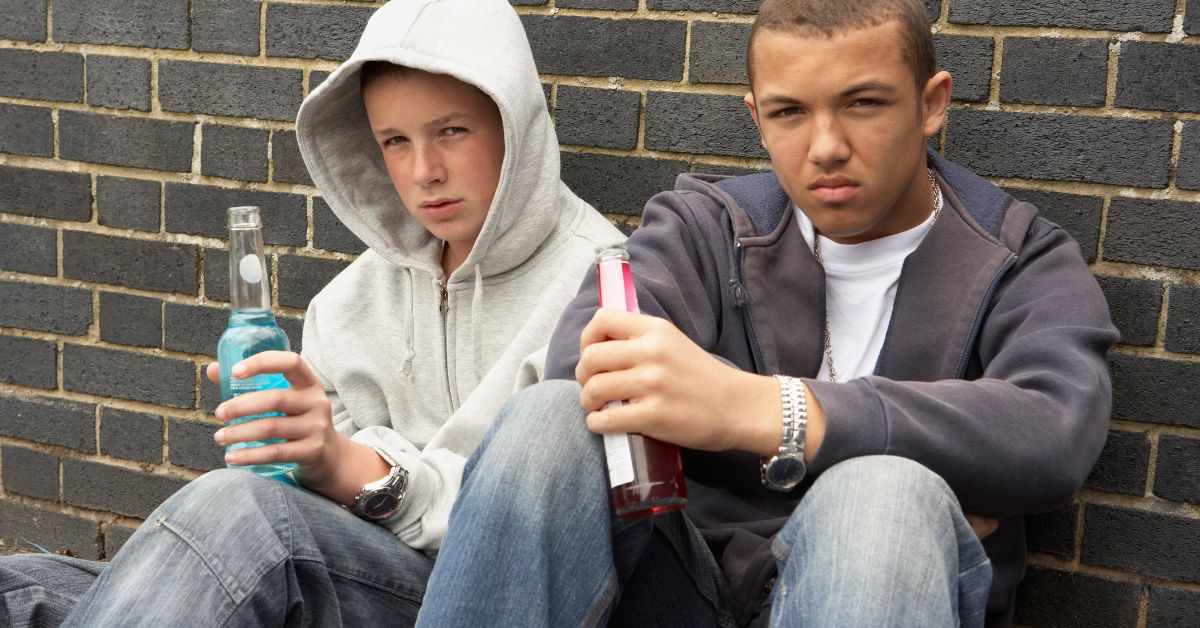When your teenager comes home with alcohol on their breath, it’s a punch to the gut that’s hard to describe. As a parent, you’ve probably spent countless nights dreaming of a future for them that’s as bright and clear as a cloudless sky.
You might be wondering, “What can I do to guide my child away from the path of drinking?” The good news is that there’s more power in your hands than you might think. This blog post isn’t just another set of instructions that you’ll read and forget.
We’re going to walk through this together, step by step, because when it comes to teenage drinking, the right parenting advice can be as soothing as a warm cup of tea on a cold night. It’s about understanding the pressures our kids face, the confusions they grapple with, and the support they desperately need—even when they act like they don’t.
What Is Underage Drinking, and Why Is It a Concern?
Underage drinking might seem like a rite of passage for some, but it’s actually a serious issue that can steer young lives off course. To understand why teens drink alcohol, it’s about looking at the pressures they face and the choices they make.
Understanding the Risks of Underage Drinking
Underage drinking refers to alcohol consumption by individuals under the legal drinking age. It’s a serious concern because a young person’s body and brain are still developing, making them more vulnerable to alcohol’s harmful effects.
It can go from drinking a sip of wine at a family dinner or a beer with friends, up to dangerous practices like binge drinking. Drinking at an early age can disrupt this development and lead to problems with learning and memory.
The Link Between Young People Drinking and Long-Term Outcomes
Teens who begin drinking are more likely to develop alcohol dependence later in life. The earlier a teen starts drinking, the greater the risk. Alcohol use can also influence a teen’s risk-taking behavior, leading to accidents, injuries, and involvement in violence or unsafe sex.
How Can Parents Prevent Underage Drinking?

As parents, it’s natural to worry about the choices your kids might make, especially when it comes to alcohol and other substances. Let’s talk about practical steps you can take to guide them away from underage drinking and towards healthier decisions. Here are some tips to help you approach your kid when it comes to this topic:
Communication With Your Teen About Alcohol
It’s important to know how to properly communicate with teens and young adults. Have a real chat with our kids about alcohol. It’s not about laying down the law without hearing them out; it’s about opening a door, a dialogue where they feel heard. Here’s how we can make that conversation matter:
- Start early: It’s easier to shape healthy attitudes before the teen years.
- Be clear about your views: Make sure they know how you feel about their drinking habits.
- Listen: Really listen. This isn’t just about your thoughts—it’s about their views, too.
- Keep it regular: Don’t make this a one-off chat. Keep the lines open, always.
Setting a Good Example: The Role of Parental Behavior
Kids have a knack for noticing everything we do, even when it seems like they’re not paying attention. When it comes to drinking, we’ve got to walk the walk.
- Model moderate drinking: If you drink, do it sensibly. Show that you don’t need to overdo it to enjoy yourself.
- Be consistent: Your actions should match your words. If you say one thing about drinking but do another, your teen will notice.
- Share your reasons: If you choose not to drink, explain why. It can be a powerful lesson.
NEW: How to make the shift from "Mom Code" to prioritizing your own well-being
Discussing the Reality of Alcohol’s Effects
Knowledge is a strong tool against poor decisions. Let’s make sure our teens understand how alcohol affects the teenage brain and the long-term risks that come with starting drinking at a young age.
- Talk about the science: Share how alcohol affects the brain and body.
- Discuss risks: Make sure they know about the dangers of drinking and driving and how alcohol can lead to situations they might regret.
- Use real-life examples: Sometimes, a story about the consequences someone else faced can be more effective than just facts.
The Importance of Setting Clear Boundaries About Alcohol Use Disorder
Boundaries aren’t about control; they’re about guidance. They help our teens make the right choices when we’re not around.
- Be upfront: Have a clear conversation about what is and isn’t acceptable when it comes to alcohol.
- Enforce consequences: If rules are broken, be fair but firm with the implications.
- Support their good choices: When they make the right call, let them know you’re proud.
Remember, parenting is a journey without a clear map, but with love, communication, and tolerance, we can steer our teens toward a healthier path.
The Early Signs of Alcohol Use in Teens

If you’re seeing some of the following signs and you’re worried, it’s important to know that there are addiction programs that can offer help and hope for your teen and your family.
Identifying Risk Factors and Early Interventions
It’s important to remember that sometimes the deck might feel stacked against us with things like a family history of drinking problems, personal battles with mental health, or just the stress that comes from friends or the world around us.
Stepping in early, when you first notice someone might be starting to play with alcohol more than they should, can make a difference in stopping that from turning into something that weighs them down for a long time. If your child has grown and is still struggling, there’s support out there specifically for parents of addicted adults.
Monitoring Your Teen’s Behavior and Peer Associations
If your teen is hanging around with kids who are into drinking, it’s like weeds taking root; before you know it, they might start to blend in with the rest of the greenery.
So, it’s a good idea to be a bit like a friendly neighborhood watch, getting to know the young folks your child spends time with, as well as their families.
SEE: Find out why your boundaries keep getting crossed (and how to reinforce them)
The Bottom Line for Parents: Facing Underage Drinking Side-by-Side

We’ve covered the weighty risks of underage drinking, the importance of your role as a parent, and the practical strategies you can employ to help your teen make healthy choices. Remember, your influence is powerful, and your guidance is invaluable. Well-informed kids are less likely to make poor decisions around drinking and substance abuse in general.
While there may be bumps along the road, your steady hand can lead your child to a brighter, alcohol-free future.
If you find yourself at a crossroads or simply need a fellow traveler to share the journey, don’t hesitate to reach out. We’re here to support you with answers, resources, or just a listening ear. Together, we can help your teen embrace the clear skies ahead.
For guidance, support, or questions, please get in touch with us. We’re in this with you.
Frequently Asked Questions About Teenage Drinking Parenting Advice
Is it OK for a 16-year-old to drink alcohol?
No, it’s not OK for a 16-year-old to drink alcohol. At this age, their bodies and brains are still developing, and alcohol can interfere with that important growth process. Plus, it’s illegal for anyone under the age of 21 to drink in many places, which means if they’re caught, they could face legal issues, not to mention potential school and sports consequences. It’s important to talk to your child about the risks of underage drinking and establish clear family rules about alcohol.
How should I punish my child for drinking alcohol?
When deciding how to punish your child for drinking alcohol, it’s crucial to balance consequences with support. You might consider taking away certain privileges, like screen time or going out with friends, for a set period. But more than that, it’s a good time for a heart-to-heart talk. Help them understand why what they did was risky and establish clear expectations for the future. Remember, the aim is to teach them, not just to punish them, so they learn from their mistakes and make better choices moving forward.
WATCH: Free, confidential workshop that explains how to "Love Another Way"
Which behavior is most likely to indicate alcohol abuse?
A behavior that might indicate alcohol abuse is when someone starts to neglect their responsibilities at home, school, or work because of their drinking. If you notice your child is suddenly slipping in their grades, skipping classes, or not showing up for their part-time job, and they’re also spending a lot of time drinking or recovering from drinking, it’s a red flag. They might also be hiding their drinking or lying about it, which is another sign they could be struggling with alcohol abuse. It’s important to approach the situation with care and consider seeking professional help.
